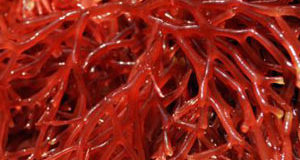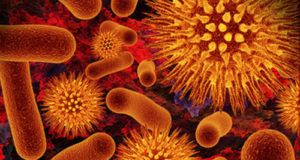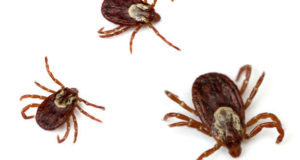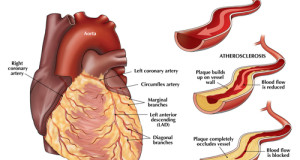After a number of alerts about carrageenen recently, I researched several web sources to collect a few simple facts for VitaminAgent. This write-up from Dr. Wiel’s staff is nice and concise: “What about carrageenan? I know that it is widely added to foods like ice cream and yogurt, but I’ve heard that it isn’t good for you and should be ...
Read More »Diseases
Home Remedies for Cellulitis
Cellulitis is a common but potentially serious skin infection of the deeper layers of the skin and the subcutaneous tissues. It is most often caused by staphylococcus and streptococcus bacteria, but can also be caused by other types of bacteria. It occurs in areas where the skin has broken open, such as a cut, scrape, insect bite, ulcer, burn, surgical ...
Read More »Personal Ecosystems – Microbiota
A microbiota is “the ecological community of commensal, symbiotic and pathogenic microorganisms that literally share our body space”. Joshua Lederberg coined the term, emphasising the importance of microorganisms inhabiting the human body in health and disease. Gut microbiota info – Everything you always wanted to know about the gut microbiota… The word microbiota represents an ensemble of microorganisms that resides in ...
Read More »Taking The Battle Against Lyme Disease Ticks To The Backyard
Reducing the number of deer ticks in a yard can reduce the risk of Lyme disease. But no strategies are a sure thing. Scientists have tried all sorts of strategies for stopping the blacklegged tick, the carrier of Lyme disease, from biting us. Lyme disease is a bacterial infection that affects an estimated 3000000 in the United States each year, primarily ...
Read More »Human Diseases Passed to Animals is more Common – Animal Diseases Passed to Humans is Accelerating
I recently had a few suggestions to write a “Zoonotic Infections” column addressing diseases of humans that are transmissible to animals. When I subsequently discussed the appropriate terminology for such diseases with a peer veterinary epidemiologist, he said, “Reverse zoonosis is fine by me but only because the medics insist that allzoonoses go from animals to man. Indeed, WHO defines ...
Read More »Prostate Cancer Prevention
The ultimate goal is to prevent men from developing prostate cancer. Although significant progress has been made and genetic and environmental risk factors for prostate cancer have been identified, the evidence is not strong enough for conclusive recommendations. Studies with finasteride and dutasteride, which are typically used to treat men with the noncancerous condition BPH, have shown that these drugs ...
Read More »Skin Care Essentials – Avoid Cancer
Most skin cancers are preventable. To protect yourself, follow these skin cancer prevention tips: Avoid the sun during the middle of the day. For many people in North America, the sun’s rays are strongest between about 10 a.m. and 4 p.m. Schedule outdoor activities for other times of the day, even in winter or when the sky is cloudy.You absorb ...
Read More »Reversing Cardiovascular Disease
Reversing Atherosclerosis and Cardiovascular Disease Larry Sosna N.D. PhD HHP The Medical establishment would have all of us believe that coronary heart disease is irreversible and must lead to either the eventual so called heart attack due to clogged arteries; or to by-pass operations, stents, followed ...
Read More »Pygeum – Ethnobotany goes mainstream for prostate
The African cherry tree, pygeum africanum, is an evergreen found at higher elevations across Africa. Its medicinal use dates to the 1700s, when tribes in southern Africa taught early explorers how to use the tree’s bark to treat bladder discomfort.1 Pygeum extract has been used in Europe to treat benign prostatic hyperplasia since the 1960s, and is currently the most ...
Read More »Prostate – Causes of Higher Level PSA Which Are Non-cancerous
High PSA levels may be the first sign of prostate cancer however, only 25% of cases with a PSA of 4 to 10 are cancerous on average. Other, less serious conditions are much more common causes of abnormally high PSA values. Earlier this year, members of the United States Preventive Services Task Force (USPSTF) released guidelines recommending against prostate specific ...
Read More » Vitamin Agent The Health & Naturalistic Source
Vitamin Agent The Health & Naturalistic Source









